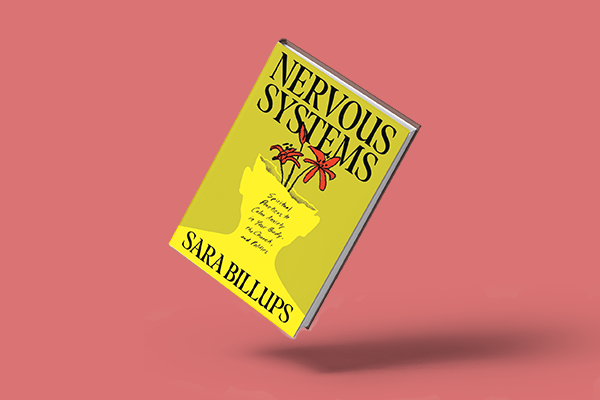There’s a growing sentiment in the U.S. that modern-day American Christianity just isn’t cutting it.
For the past five years, we’ve seen the same trend lines of disaffiliation from religious groups, particularly among young people. Some have left because of theological teachings that seem to exclude women and LGBTQ people or theologies that deem scientific evidence inferior to literal biblical interpretation.
Distaste of evangelicalism, in particular, has intensified since the recent inflation of the evangelical-political complex. Donald Trump and Roy Moore, among others, gained the popular evangelical vote after using Christian rhetoric to qualify far-right opinions on the campaign trail.
But The Heretic, a new documentary about controversial author and thinker Rob Bell, offers a new image of Christianity and faith. The film traces Bell’s work since the release of his hair-raising book, Love Wins: A Book About Heaven, Hell and the Fate of Every Person Who Ever Lived , which questioned the damnation of human beings to hell.
Bell, whose work is saturated in new interpretations of the Bible, provides hope to both those once immersed in the church and those raised with no religion.
Director Andrew Morgan told Sojourners that in working on this project, “it felt like a light in a dark room got turned on again.” It helped him see beyond the hurtful expressions of Christianity and realize, “there’s life here.”
Morgan, who has now completed three full-length documentaries, said, “this feels like the most personal thing that I’ve ever made.”
Morgan said he was inspired to make the film after he walked away from his conservative Christian upbringing in his early adulthood. Seven years ago, after Morgan witnessed his father die in a motorcycle accident, the presiding pastor at the funeral invited the congregation to accept Christ in their hearts. The pastor’s invitation felt, “too clean. It was too easy, and yeah, I suppose in the moment it felt insulting to the enormity of the pain,” he said.
After the incident, Morgan chose to distance himself from Christianity and from the certainty of his non-denominational evangelical upbringing in Marietta, Ga.
It’s a story that resonates with many, including Rob Bell.
“This thing that says it’s orthodoxy isn’t,” Bell told Sojourners. “It’s a rather bastardized, neutered, military industrial complex, American, Western thing.”
In his study of the Hebraic tradition, Bell says he realized that challenging God was part of the faith experience. Conformity and orthodoxy, then, were introduced when “the Jesus movement was hijacked by empire,” he said.
Bell himself wasn’t raised in a specific denomination. His parents would bring him to church, but he wasn’t interested in conventional teachings or “arguments for the existence of God.” Rather, he said it was the Jesus stories that resonated with him deeply.
“… whenever somebody had been pushed to the edges, Jesus always went to them, and whoever had been marginalized and oppressed, Jesus heard their cry and moved toward them,” Bell said. “And whatever walls and obstacles had been built and rules to keep apart, Jesus simply smashed those to pieces.”
By highlighting the provocative messages found in the Bible, Bell provides a refreshing view of God to those with or without a religious background.
In addition to those who, like Morgan, made active decisions to leave the church, Bell also draws an unchurched crowd — the ones who find themselves struggling with existential questions about meaning. His work with them involves identifying components of their life as “spirit” or “soul.”
“I never sought out to talk to Christians. I set out to talk to humans,” Bell said. “The Jesus tradition took me into, ‘what does it mean to be human?’”
Michael Ross, the film’s producer, said he found it fascinating that people would spend $40 to go see Rob Bell talk about the Bible; they do it because of the countercultural messages that Bell supplies.
In Heretic, Bell talks at a crowded Seattle bookstore about King Solomon. He prefaces the story with the idea that the Hebrew God was believed to have liberated the Hebrews from slavery in Egypt. When Solomon eventually becomes king, however, he builds a temple honoring God using slaves.
Bell continues by comparing how the U.S., a nation founded and formed by immigrants, has a segment of the population that wishes to keep immigrants out. The bookstore’s quiet, well-mannered crowd consequentially expelled laughter and “woahs” of realization. Bell’s biblical exegesis draws out the progressive, subversive, and relevant messages of the text, providing fresh air to those who’ve felt suffocated from the conventional readings of the same scriptures.
By working with Bell, Morgan was exposed to the revolutionary premise of the Bible, which “unlocked something that had been locked away,” he said.
Morgan says he hopes the documentary causes those who’ve rejected Christianity because of rigidity and exclusivity, but are still spiritually hungry to “feel far less alone” — just as he did when making the film.
Got something to say about what you're reading? We value your feedback!







